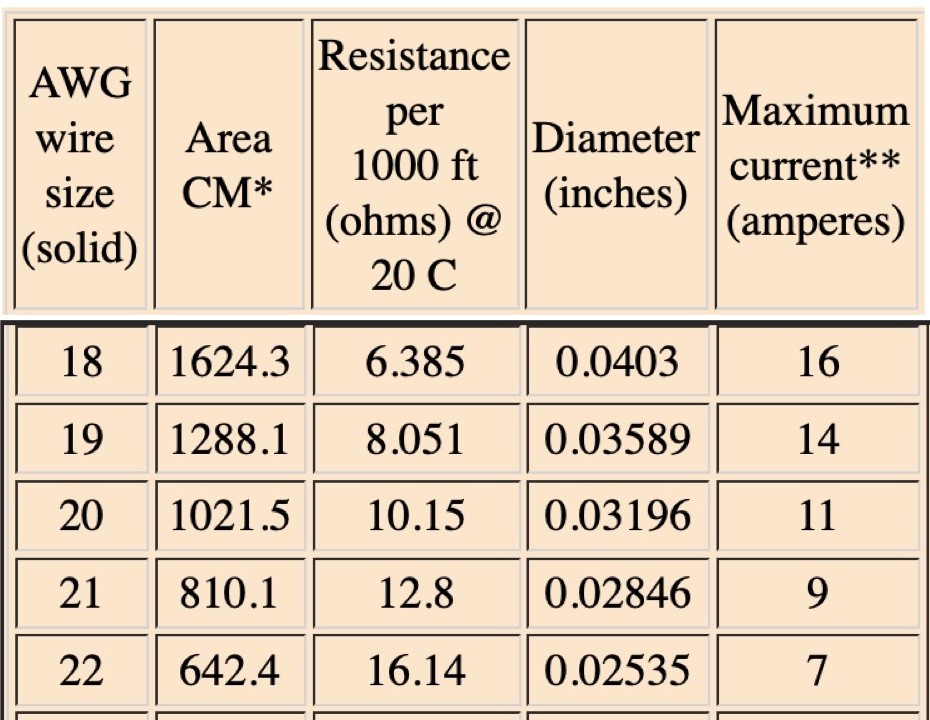Since I have never used cables that come with ZWO products, I have also never measured them. With all the complaints about connectivity with the ASIAIR, I decided to pull a (pristine and never used) 1m power cable from the 4th generation ASIAIR (the newest ASIAIR that I have). Called "plus," but there are at least now 3 different ASIAIR plus models.
First, a table of what a good copper wired cable should be:

When converted to metric units, an 18 AWG copper cable should have 20.9 milliohms per meter, a 19 AWG should have 26.4 mΩ/meter, 20 AWG 33.3 mΩ/m , 21 AGC 42 mΩ/m, etc.
However, when I measured the resistance of the 1m cable, I see this:

Just in case it is the (Switchcraft) connector that I used at the two ends, I measured the connector itself, and it shows this:

So, the two connectors together should contribute just 0.5 mΩ. Leaving a whopping 43 mΩ for just a 1 meter long cable.
The milliohmmeter is actually a 4-wire milliohm meter (two wires to supply current through the load, and two wires to measure, with almost no current, and thus no voltage drop). It further has a manual knob to zero out any residual resistance.
40 mΩ is not good news. A 3A load would experience a 0.12V drop, for example. For just a 1 meter long cable.
They are either using a cable that does not use decent sized copper (it is equivalent to a 21 AWG copper wire), or the connectors are of poor quality (even the Switchcraft connectors that I used in the test jig are not even close to being expensive -- but bought from a real source, Mouser Electronics).
Many "18 AWG" cables that are sold at Amazon are also measured by other people to be equivalent to be only equivalent to just 21 AWG. I have only come across one source at Amazon with a true gauge, and luckily, it also has silicone insulation that does not become stiff when the temperature is cold.
Caveat Emptor.
Chen